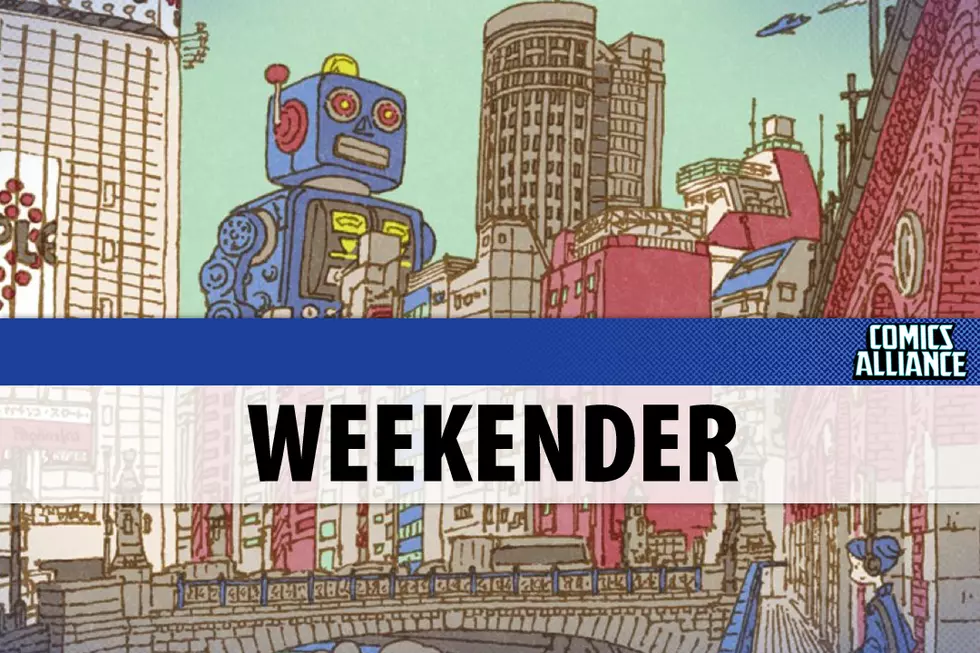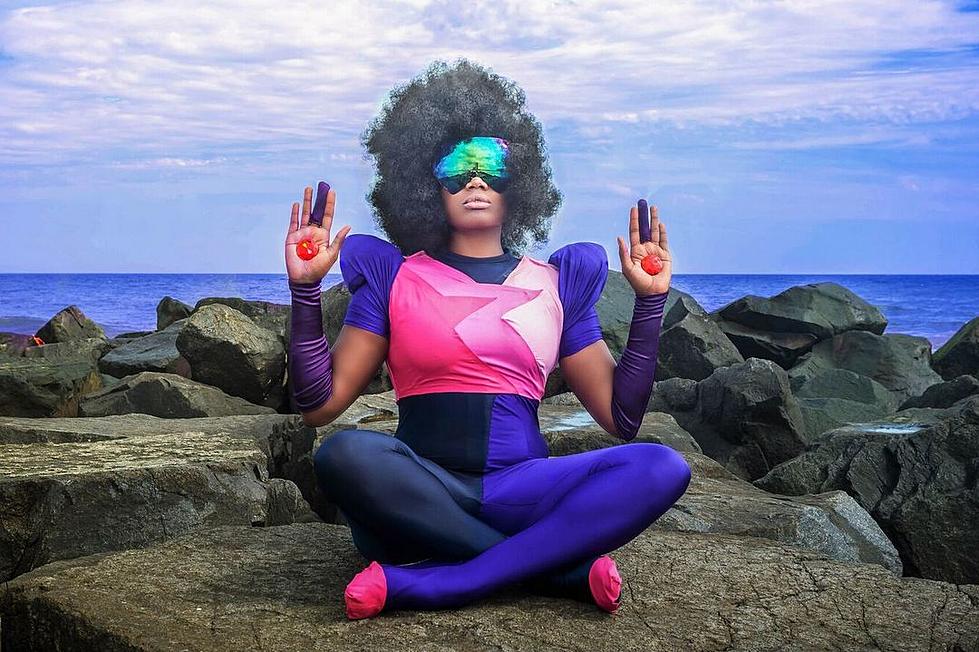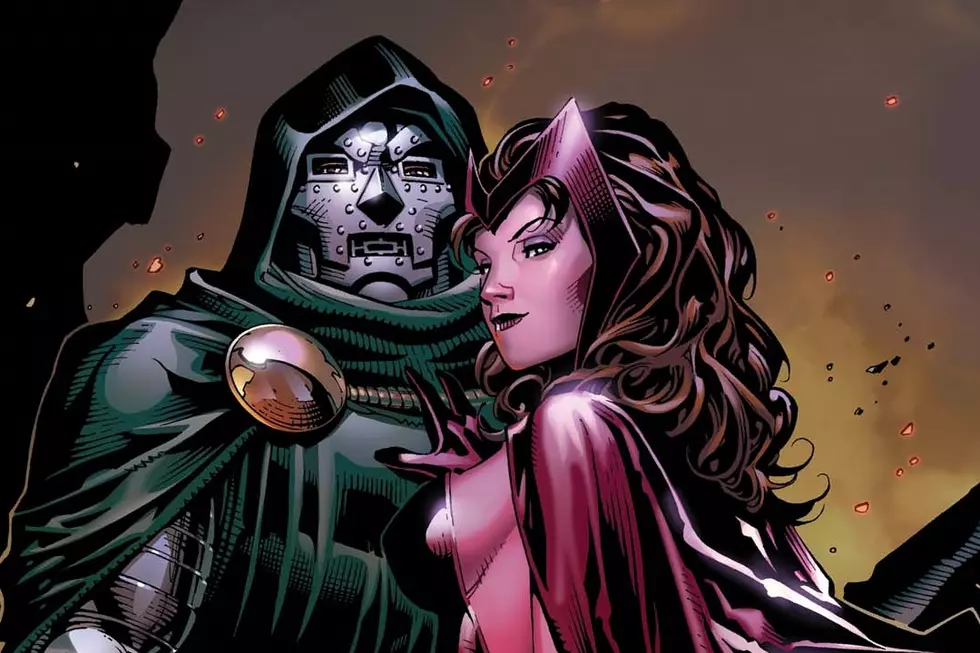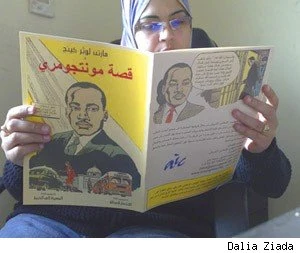
Egyptian Activists Inspired by Forgotten Martin Luther King Comic

While the world's political pundits debate the role the United States has played in the historical events presently occurring in Egypt, one activist is crediting a specific American with playing a part in inspiring a generation of Egyptians to take to the streets in a nonviolent protest that has changed the course of their nation. That American is Martin Luther King, Jr., and his message was transmitted by way of a 50-year-old comic book recently translated into Arabic and distributed throughout the Middle East.
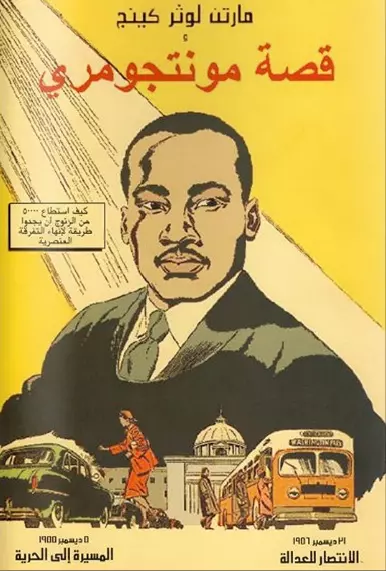
Originally published by the Fellowship of Reconciliation in 1958, The Montgomery Story was a comic book that dealt explicitly with Dr. King's philosophy of non-violent civil disobedience, specifically with respect to the legendary Montgomery Bus Boycott. The book included a how-to section that demonstrated how the practice can actually yield results. According to FOR's website, The Montgomery Story sold more than 250,000 copies.
Dalia Ziada is Egypt Director of the American Islamic Congress, a non-profit group founded in the wake of the terrorist attacks of September 11, 2001 to confront intolerance against Muslims, and later to promote peace and civil rights throughout the Arabic world. The AIC's HAMSA initiative - designed to link civil rights groups throughout the Middle East -- undertook in 2008 a project to translate The Montgomery Story into Arabic (and later Farsi). With the endorsement of the Fellowship of Reconciliation, Ziada distributed 2,000 copies of the comic throughout the Middle East, and her efforts were consequently reported on by news sources including Time Magazine and History News Network:
Spreading the message of non-violent resistance throughout the Middle East is ultimately a means to an end for Ziada and the rest of the AIC; that is, to inspire action. "The main message I hope that Arabic readers will take from the MLK comic book is that: change is not impossible. It is time to stop using our muscles blindly. Let's try using our intellect in innovative, creative ways to pressure decision makers and end dictatorship, tyranny and the suppression practiced against us."

In a recent newsletter to supporters of the American Islamic Congress, Ziada indicated that the translated Martin Luther King comic book had been identified as contributing to the air of peaceful revolution in Egypt. The Fellowship for Reconciliation agreed. Ziada shared this anecdote in her communique:
When, at first, we went to print the comic book, a security officer blocked publication. So we called him and demanded a meeting. He agreed, and we read through the comic book over coffee to address his concerns. At the end, he granted permission to print and then asked: "Could I have a few extra copies for my kids?"
The comic book has been credited with inspiring young activists in Egypt and the larger region (we have a Farsi version as well). Last week I distributed copies in Tahrir Square. Seeing the scene in the square firsthand is amazing. Despite violent attacks and tanks in the street, young people from all walks of life are coming together, organizing food and medical care, and offering a living model of free civil society in action.
While we can't accurately quantify The Montgomery Story's real influence on the protesters in Egypt or elsewhere, it's certainly cool that a comic book starring one of America's greatest real-life heroes has inspired even one person to take to the streets in the way we've seen over the last several weeks. That an organization as big and forward-thinking as the American Islamic Congress thought to deploy this work - whose actual creators remain unknown - says quite a lot, indeed, and their actions remind us of the potential power and inherent strengths (portability being perhaps the helpful important, in this case) of our beloved medium of comics.
You can read The Montgomery Story in English, Arabic and Farsi at this link.
More From ComicsAlliance




